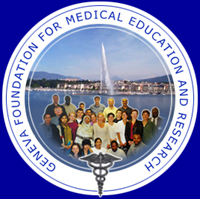EDUMECENTRO 2022;14:e1855
LETTER TO THE EDITOR
About the article: "Digital social networks applied to teaching and medical assistance"
A propósito del artículo: "Las redes sociales digitales aplicadas a la docencia y asistencia médicas"
Leonel Gustavo Céspedes-Tamayo1* https://orcid.org/0000-0002-4293-0076
1 Holguín University of Medical Sciences. "Lucía Íñiguez Landín" Surgical Clinical Hospital Holguin. Cuba.
* Author for correspondence. Email: lgcespedes@infomed.sld.cu
Submitted: 06/02/2021
Accepted: 23/11/2021
Dear editor:
Contemporary university education is characterized by profound transformations aimed at achieving a higher quality in the learning of future professionals, where Information and Communication Technologies (ICT) play a fundamental role in this purpose, and with them, virtual environments focused on Web 2.0.
I have read with great interest the article "Digital social networks applied to medical teaching and assistance" in the journal EDUMECENTRO by Marrero Pérez et al.(1) and it is of transcendental relevance in the times in which COVID-19 has spread across all continents, causing an international health crisis.
Just two decades ago, educational institutions discussed the relevance of ICTs and social networks in teaching-learning processes and other educational activities; in its beginnings there were more detractors than defenders.(2) Today, as Céspedes-Tamayo mentions:(3) "… the issue is not reduced to the level of sympathy or antipathy, trust or disbelief that one has in the face of technological devices, but which refers to the dichotomy between `connected' and `disconnected'".
In Cuba, the policy of the system of the Ministry of Higher Education (MHE) for the use of the Internet and later of social networks has been the object of analysis since 1996. The speed of access at that time was not ideal, however, With available technologies, a national university network called RedUniv had already been created, formed little by little with the aim of uniting the different higher education centers throughout the country, especially university libraries.(4) At present, higher education institutions in Cuba, added to the new Social Communication Policy of the State and the Cuban Government,(5) strengthen their presence in social networks (including scientific ones) from their institutional communication strategies.
Likewise, Álvarez-Sintes(6) in an analysis of the particularities of the 2019-2020 academic year states that during the confrontation with the pandemic, in order to improve and make the training processes more effective, distance learning was used, a modality that: "... is here to stay." The use of the virtual classroom, social networks and educational platforms by students and teachers consolidated and contributed to the strengthening of the virtual health university.
The transformation of educational systems and the incorporation of techniques and resources that allow greater versatility, without the need to be anchored in a system lacking technology, should be a priority. Likewise, it is necessary to continue with the extension of resources accessible to students and the constant updating of teachers.(7)
Given the global epidemiological situation, an updating of the study plans in the medical sciences contextualized to the effects of the pandemic is vital. New forms of evaluation should be generalized and the use of information and communication technologies should be encouraged in the teaching-learning process to guarantee its quality in today's adverse situations.(8)
BIBLIOGRAPHIC REFERENCES
1. Marrero Pérez MD, Rodríguez Leyva T, Águila Rivalta Y, Rodríguez Soto I. Las redes sociales digitales aplicadas a la docencia y asistencia médicas. EDUMECENTRO [Internet]. 2020 [citado 06/02/2021];12(3):[aprox. 15 p.]. Disponible en: http://scielo.sld.cu/scielo.php?script=sci_arttext&pid=S2077-28742020000300261
2. López de la Madrid, MC, Flores Guerrero, K. Posibilidades de Facebook en la docencia universitaria desde un caso de estudio. Apertura [Internet]. 2017 [citado 27/01/2021];9(2):[aprox. 16 p.]. Disponible en: http://www.scielo.org.mx/scielo.php?script=sci_arttext&pid=S1665-61802017000300132
3. Céspedes-Tamayo LG, Augello-Díaz SA, Ulloa-Cedeño HA. Redes sociales en el proceso enseñanza-aprendizaje. Aula Virtual de Salud. XIII Jornada de Aprendizaje en Red [Internet]. 2020 [citado 28/01/2021]. Disponible en: http://aulavirtual.sld.cu/pluginfile.php/73198/mod_data/content/12722/Redes%20sociales%20en%20el%20proceso%20ense%C3%B1anza-aprendizaje.pdf
4. Alfonso Bergamtiño LM, Oliva Valdés D. Universidades cubanas: la piedra de Sísifo de una conexión. Juventud Rebelde [Internet]. 2018. [citado 05/02/2021]. Disponible en: http://www.juventudrebelde.cu/ciencia-tecnica/2018-07-05/universidades-cubanas-la-piedra-de-sisifo-de-una-conexion
5. Comité Ejecutivo del Consejo de Ministros. Política de Comunicación Social del Estado y el Gobierno Cubanos. La Habana: Gaceta Oficial No. 96 Ordinaria; 2021.
6. Álvarez Sintes R. La educación médica cubana ante la pandemia provocada por la COVID-19. MediCiego [Internet]. 2020 [citado 06/02/2021];26(4):[aprox. 4 p.]. Disponible en: http://www.revmediciego.sld.cu/index.php/mediciego/article/view/2865
7. Céspedes-Tamayo LG, Salomón-Vila AM, Augello-Díaz SL. Retos y oportunidades de la educación médica cubana durante la COVID-19. Educ Med [Internet]. 2021 [citado 05/02/2021];22(supl.2):[aprox. 2 p.]. Disponible en: https://www.elsevier.es/es-revista-educacion-medica-71-pdf-S1575181321000127
8. Céspedes-Tamayo LG, Ulloa-Cedeño HA. Médicos residentes cubanos durante la COVID-19. Educ Med [Internet]. 2020 [citado 28/01/2021];22(supl.2) [aprox. 1 p.]. Disponible en: https://www.sciencedirect.com/science/article/pii/S1575181320301546?via%3Dihub
Declaration of interests
The author declares no conflicts of interest.
Copyright (c) 2022 EDUMECENTRO

Esta obra está bajo una licencia de Creative Commons Reconocimiento-NoComercial-CompartirIgual 4.0 Internacional.











